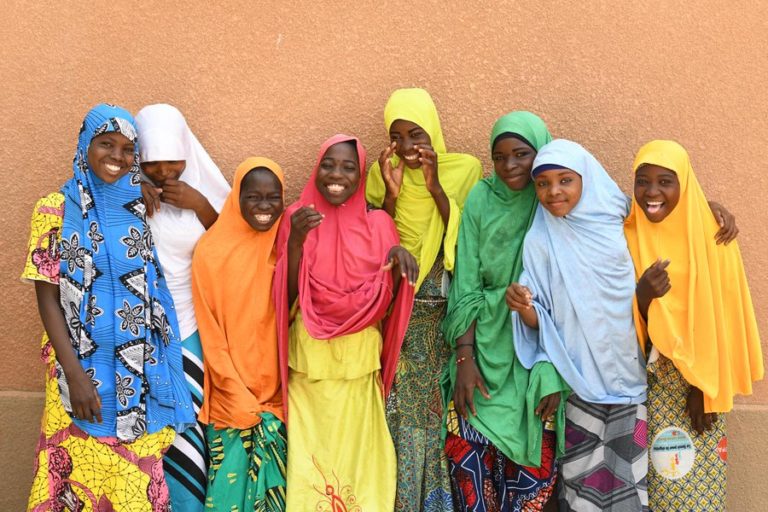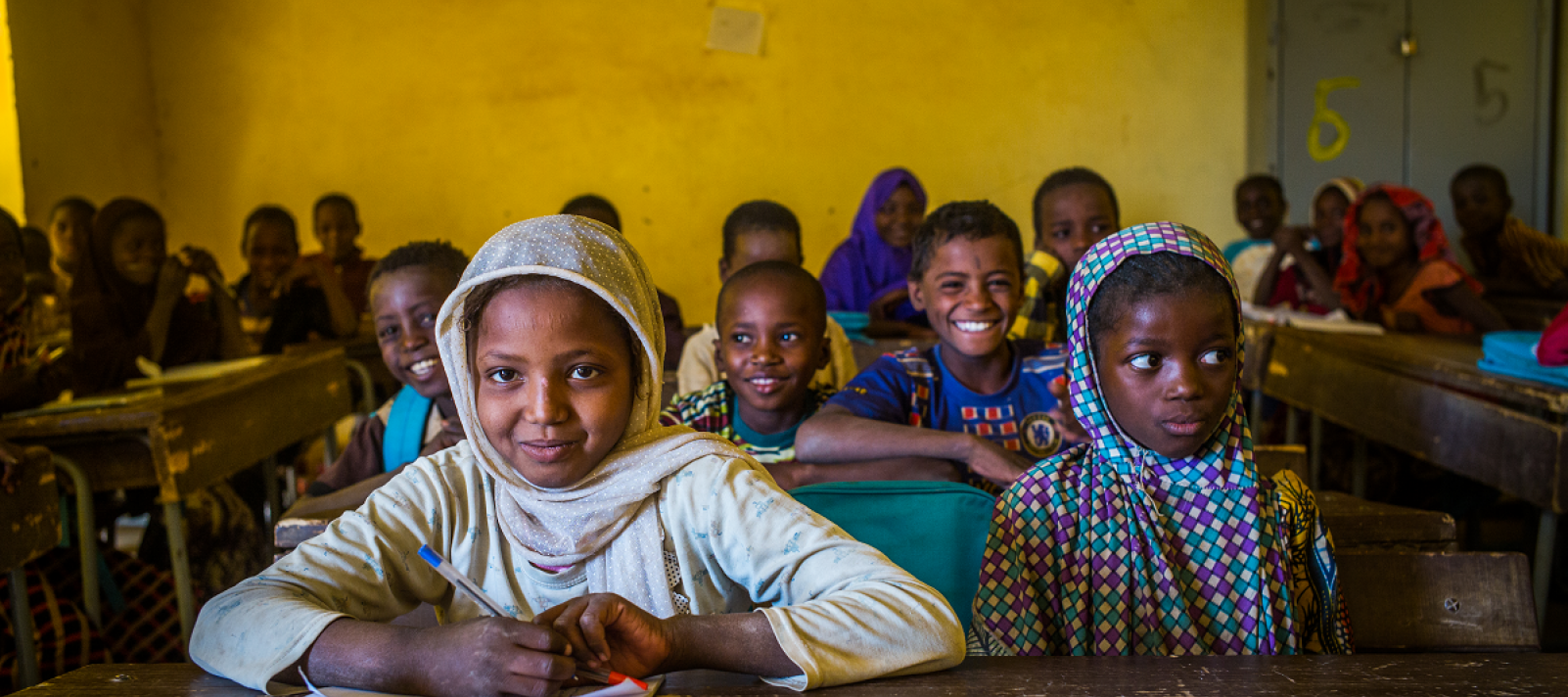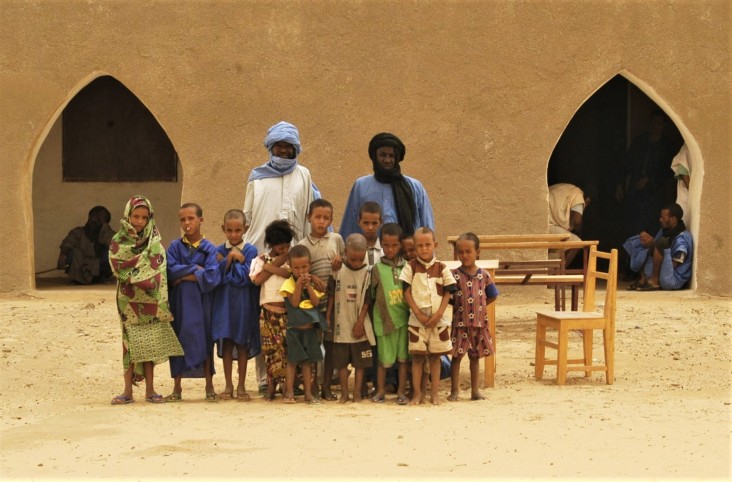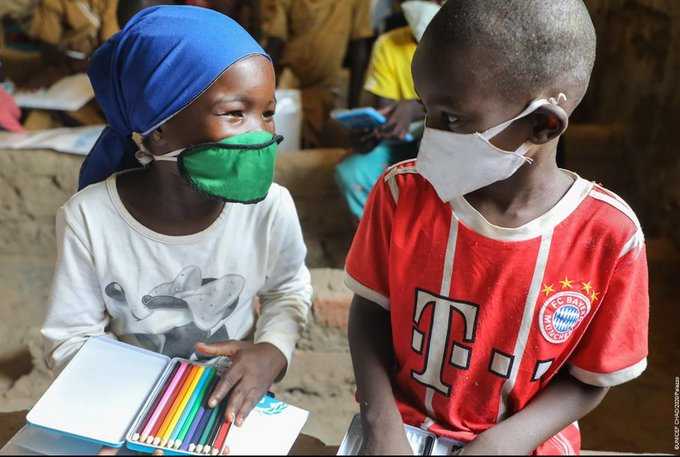Education Cannot Wait Announces US$13 Million First Emergency Response to Benefit a Quarter of a Million Children and Youth in the Sahel – ECW First Emergency Response Investments in the Past Four Months Now Total $60.1 Million

With United Kingdom support, the education in emergency response to ongoing crises compounded by the COVID-19 pandemic will be scaled up in Burkina Faso, Mali and Niger
Education Cannot Wait (ECW) announced today US$13 million in new funding to scale up the education in emergency response in the Sahel countries of Burkina Faso, Mali and Niger. Approximately 247,000 crisis-affected children and youth (of which over 55 per cent are girls), will be able to access quality education through the new funding.
“With this new funding, ECW’s total First Emergency Response investments in just the past four months alone now span 33 countries and crisis-affected contexts, with a record amount of US$60.1 million allocated by ECW for vulnerable children and youth in crisis-affected countries ranging from Afghanistan, Bangladesh, Colombia, Iraq, Lebanon, Mali, South Sudan, Uganda, Yemen, Zimbabwe and many more,” said Yasmine Sherif, Director of Education Cannot Wait.
The First Emergency Response investments in the Sahel were made possible with a frontloaded £10.5 million contribution from the United Kingdom. The new round of grants scale up ECW’s investments in the Sahel announced in July 2019 and in December 2019.
Interventions will improve access to learning in protective environments and reduce school dropouts in Burkina-Faso, Mali and Niger, responding to pre-existing crises and to the compounding effect of COVID-19. To build inclusive and equitable quality education, as outlined in Sustainable Development Goal 4, grants target the most vulnerable populations impacted by forced displacement, including girls and children with disabilities. Investments will reach children and youth across age-groups and education levels: 13 per cent in pre-primary, 66 per cent in primary and 21 per cent in secondary education.
“Attacks on children and youth, and violence across the Central Sahel in Burkina Faso, Mali and Niger continue to surge and close to 5 million children are now in urgent need of humanitarian assistance. Girls and boys displaced by violence, who are living in precarious conditions, exposed to high-levels of malnutrition, food insecurity and with limited access to clean water and sanitation facilities are facing heightened risks due to the COVID-19 pandemic,” said Yasmine Sherif, ECW Director. “For the vulnerable children and youth of the Sahel, education is a beacon of hope, of safety and their only opportunity to build a better future.”
Despite ECW’s expanded response, there remains an approximate US$94 million funding gap for the education response across these three countries. To help fill the gap, and to expand its support for children and youth impacted by COVID-19 in other crisis-affected countries, ECW urgently appeals for US$310 million in additional funding, and calls on donors, the private sector and other key partners to support enhanced resource mobilization in response to the education crisis in the Sahel.
Information on Grants per Country:
- In Burkina Faso, an estimated 544,000 school-aged children have been affected by the ongoing violence. The new ECW US$4 million grants allocation will support inclusive access to quality education, continuity of education for displaced children and youth, expanded COVID-19 response – including distance-learning – and school feeding programmes. The grants aim to reach over 51,600 children (60 per cent of whom are girls) and close to 1,200 teachers (60 per cent of whom are women). The investments will be delivered by EDUCO (US$800,000), Enfants du Monde (US$1 million), UNICEF (US$1.4 million) and the World Food Programme (US$800,000).
- In Mali, as of March 2020, over 1,200 schools were closed as a result of ongoing attacks on learning facilities and insecurity. The COVID-19 pandemic – and the ensuing closure of all schools in the country – has exacerbated pre-existing humanitarian needs, with an estimated 1.4 million children in need of urgent support in the education sector. The new ECW US$5 million grants allocation will support inclusive access to quality education, continuity of education for displaced children and youth, expanded COVID-19 response – including distance-learning – as well as the reopening of schools in a safe and protective learning environment. The investments will be delivered by Humanity and Inclusion (US$870,000), Plan International (US$599,000), Save the Children (US$1 million), UNICEF (US$1.6 million) and World Vision International (US$926,000).
- In Niger, more than 2.6 million children and youth are out of school, according to analysis from 2018. COVID-19, displacements connected with attacks by armed groups on the borders with Mali, Burkina Faso and Nigeria, and an increase in climate-changed-induced natural disasters such as floods and droughts are putting even more girls and boys at risk. Schools lack adequate water, hygiene and sanitation facilities. Targeted abductions and attacks on schools are keeping even more students from attending school. The US$4 million ECW investment will focus on inclusive access to safe and protective learning environments, psychosocial support for internally displaced, refugee and host community children and youth, vocational training courses to support out-of-school adolescents, and targeted support for girls. The investments will be delivered by COOPI (US$709,000), Save the Children ($850,000), UNICEF ($1.15 million), WFP (US$687,000) and World Vision (US$600,000).
Notes to Editors:
For more information on ECW’s support in the Sahel:
- Education Cannot Wait approves US$6 million first emergency response Sahel (July 2019)
- Education Cannot Wait expands first emergency response in Sahelian nations of Mali and Niger (December 2019)
About Education Cannot Wait (ECW)
ECW is the first global fund dedicated to education in emergencies. It was launched by international humanitarian and development aid actors, along with public and private donors, to address the urgent education needs of 75 million children and youth in conflict and crisis settings. ECW’s investment modalities are designed to usher in a more collaborative approach among actors on the ground, ensuring relief and development organizations join forces to achieve education outcomes. Education Cannot Wait is hosted by UNICEF. The Fund is administered under UNICEF’s financial, human resources and administrative rules and regulations, while operations are run by the Fund’s own independent governance structure.
On Twitter, please follow: @EduCannotWait @YasmineSherif1 @KentPage
Additional information available at: www.educationcannotwait.org
For press inquiries:
Anouk Desgroseilliers, adesgroseilliers@un-ecw.org, +1-917-640-6820
Kent Page, kpage@unicef.org, +1-917-302-1735
For other inquiries: info@un-ecw.org
For Press Inquiries:
Anouk Desgroseilliers:
adesgroseilliers@un-ecw.org
+1-917-640-6820
Kent Page:
kpage@unicef.org
+1-917-302-1735



